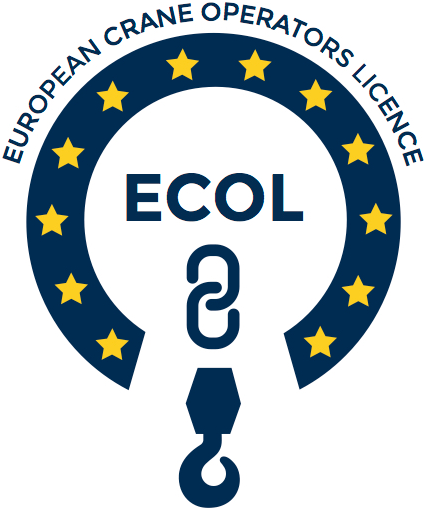A novice operator is someone who wishes to be trained as an operator, but has no previous experience in this field and holds no licence as crane operator.
If you are a novice operator, you are required to follow the ECOL training programme at an ECOL certified training institute before you can be examined. You can follow the ECOL training and examination in English or in your national language, provided there is a training institute in your country. Students who take the course (and examination) in their national language are required to take a language examination, demonstrating they have a minimal command of the English language. This knowledge is required for communication with the ECOL foundation.
The ECOL training consists of a theoretical and a practical part, both of which are required to have a duration of 120 hours minimum.
The theoretical training is given in a classroom setting, where there can be interaction between students. The ECOL norm is a minimum of 2 and a maximum of 8 students per teacher.
Currently there are two types of practical training programmes – training in a school or in-company training.
School training: The practical training is administered in a school setting using a modern mobile crane and with two students supervised by one teacher. The students alternate as crane operator and as rigger during the practical training. The training duration is 120 hours.
In-company training: The practical training is given during an “apprentice program” in a company. The apprentice programme and the company in question have to comply with the requirements of the ECOL standard and a logbook has to be kept during the practical training, recording the assignments executed.
The compulsory documented minimal training time in-company is 240 hours and the in-company trainers or mentors of the apprentice should themselves have an ECOL licence.
The in-company training ends with a 40 hour practical finishing course in a school setting.
